Dear all
The Chair for the Office for Students (OfS) has been confirmed as Sir Michael Barber, Wonkhe profile his career here. Recruitment for the OfS Chief Executive is underway.
Higher Education and Research Bill– amendments are being submitted for the House of Lords report stage. One focusses on students and academic staff at HE providers stating the government has a duty to encourage international students, ensure UG and PG students are not treated as long-term migrants, maximise British and international research collaboration, especially in EU, and provide favourable employment conditions for non-British individuals offered employment at a HE institution. The amendment is not expected to be accepted. Another relates to changes to the repayment terms of student loans. The Lords Report stage is on 6th March and the list of amendments is expected to grow further.
EU Withdrawal Bill – This week MPs discussed:
- A clause advocating a strict timetable of parliamentary scrutiny throughout the negotiations with the EU.
- The rights of EU nationals living in the UK
- The impact of withdrawal on a number of different industries
- The role of the devolved Nations in negotiations and repatriated powers.
The bill was passed by vote in the Commons on Wednesday. No amendments were accepted. It was anticipated that there might be a push to a vote on residency rights for EU nationals. A leaked letter from the Home Secretary, reputedly aiming to quell backbench rebellion on the subject, stated the future rights of EU citizens in Britain would be settled by a separate Immigration Bill. “..the Government remains committed to providing reassurance to EU nationals here and UK nationals in the EU as a priority once Article 50 has been triggered… I’d also like to reassure colleagues that Parliament will have a clear opportunity to debate and vote on this issue in the future… after we leave the European Union we will have an immigration system that supports our economy and protects our public services, and that should mean securing the rights of EU citizens already here, as well as establishing a new immigration system for new arrivals from the EU once we have left. But this isn’t just about ensuring British businesses and our public sector have access to the right workers, we owe it to those many European citizens who have contributed so much to this country to resolve this issue as soon as possible and give them the security they need to continue to contribute to this country.”
EU citizens featured regularly during Prime Ministers Questions this week. Sarah Wollaston (Con, Totnes) called on the PM to commit to guaranteeing the rights of EU citizens living in the UK. May responded this was a priority for the early stage of negotiations. James Berry (Con, Kingston and Surbiton) said his constituency was “enriched” by skilled workers from abroad. The PM assured him the “brightest and best” would still be welcome after Brexit, including from the EU, but the Government still aimed to lower net migration.
Meanwhile ministers are pressing Lords as they want the EU Withdrawal Bill passed by Tues 7 March. It is expected the Government will trigger article 50 on Thursday 9th March during the EU Summit.
UUK Brexit Priorities: Universities UK have provided a succinct briefing covering Brexit priorities for the HE sector and make some new and interesting points. This calls for three short term transitional arrangements:
- Confirm rights to reside and work in the UK post-exit for EU nationals that are currently working in the university sector and their dependants. (This is in the white paper.)
- Confirm that EU students starting a course in 2018–19 and 2019–20 will continue to be eligible for home fee status, and be eligible for loans and grants.
- Signal that the government will seek to secure continued UK participation in the Horizon 2020 research and innovation framework programme. (This is in the white paper.)
Six exit priorities:
- Residency and permanent right to work for EU nationals currently working in the university sector, and their dependants, with full access to public services.
- Continued UK participation in the Horizon 2020 research and innovation programme until the close of the programme period in 2020 (even if post-Brexit).
- Close collaboration with European partners to deliver excellent research (including seeking access to Horizon 2020 successor programme)
- Continued access to Erasmus+ and the Marie Sklodowska-Curie Actions programmes (widely discussed but absent from the white paper)
- An outcome which allows for the continued recognition of professional qualifications between the UK and the remaining 27 EU member states
- Preserving and building on regulatory and standards equivalence with other EU countries.
- Finally a call to push the HE agenda within domestic policy change including simplifying visas (students and staff), further research investment, and government targets for UK student mobility.
Brexit – educational influence: The BBC have analysed the leave vs remain voting trends and highlight at local ward level that the strength of the leave vote was strongly correlated with lower educational qualifications. If the proportion of the ward electorate with a degree was 1% lower, on average the leave vote was 1% higher. The level of educational qualification accounts for 2/3s of the voting preference, adding in age and ethnicity accounts for 83% of the variation in votes.
Sale of student loan book: The government announced their firm intention to sell the student loan book this week. The sale has attracted much press attention and has been covered by the BBC, the Guardian, the Independent, the Times, contrasting views from HEPI and Critical Education and a thought provoking article in the Financial Times which criticises the governments self-imposed rules and states selling an asset whose value, at the government’s cost of borrowing, exceeds its price in the market will worsen the government’s finances, not improve them. An Early Day Motion (929) also heard Labour and Scottish National Party MPs protest the sale. Terms and conditions of loans or the mechanisms of repayment cannot be changed and the loans will continue to be serviced by HMRC and SLC. The purchasers would not have the right to directly contact borrowers. The loan value is estimated at £4bn by the government. The sale process may take several months as it involves securitising the remaining future repayments on the loans and selling securities representing the rights to these to a range of purchasers. The government has announced its intention to utilise the sale to obtain a short term cash boost earmarked to reduce the national debt. An article in iNews crunches the numbers including comment from Martin Lewis, consumer finance expert.
Falls in applications: The Guardian continue the story of the falls in applications and longer term recruitment trends following the release of UCAS data last week.
Widening Participation: An interesting Telegraph article by Chris Wilson, Co-CEO of the Brilliant Club, describes successes in training and placing early career researchers in schools. The scheme aims to increase school attainment including exposing pupils to high level equipment, however, it also had a beneficial effect on increasing the number of WP pupils attending high tariff HE institutions. 53% of free school meals pupils enrolled on this Scholars programme secured a place at a highly-selective university – compared to the national 5% progression rate.
The Fair Access Agreement guidance was also launched this week. As anticipated it continues pushing universities on the school sponsorship agenda. This is particularly interesting when contrasted with the closure announcement of another university technical college this week, as reported in FE Week.
Finally the Sutton Trust have published Global Gaps Comparing socio-economic gaps in the performance of highly able UK pupils internationally. It draws on the 2015 OECD Pisa data for reading, maths and science and tells a familiar story whereby bright but poor pupils fall behind by over 2 school years. It acknowledges these gaps occur throughout the developed world whilst calling on government to establish ‘highly able’ fund to improve the life chances of high attainers in poorer schools.
Parliament is now in recess until 20 Feb so no further bill developments are expected.
There will not be a policy update next week.

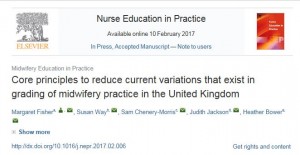
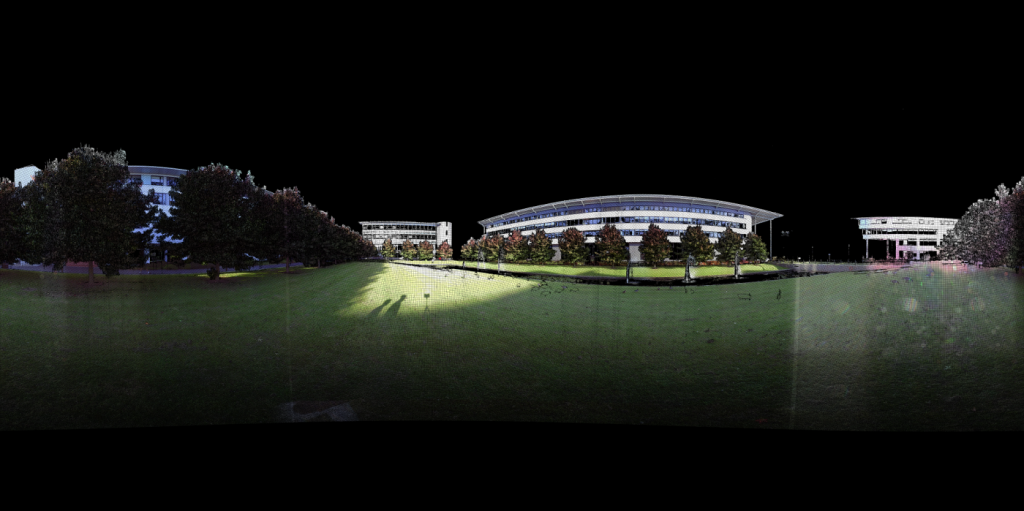
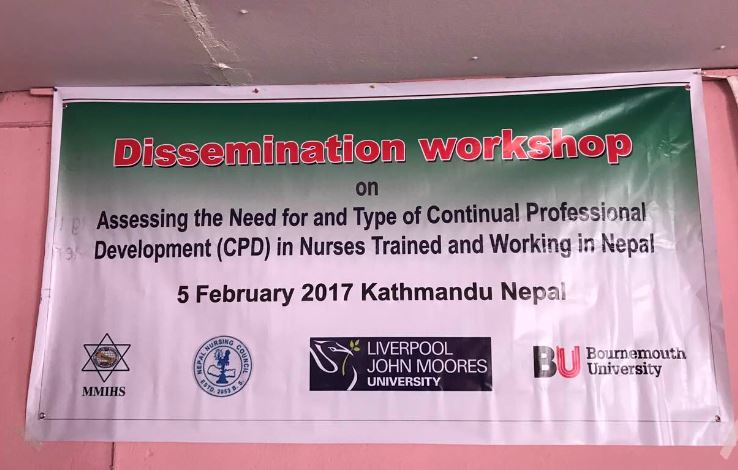

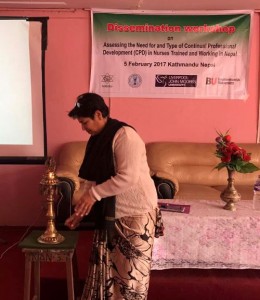
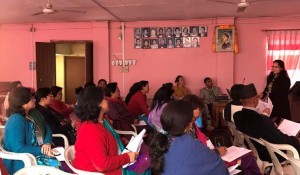
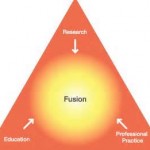
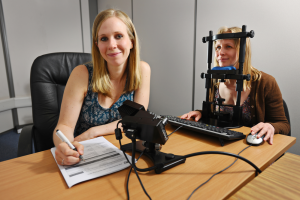
 Who should respond?
Who should respond?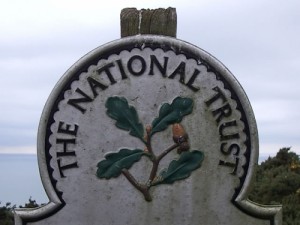 The National Trust have published their research strategy for the next four years. You can read it in full
The National Trust have published their research strategy for the next four years. You can read it in full 
 The Centre for Qualitative Research presents Clare Gordon and Caroline Ellis-Hill
The Centre for Qualitative Research presents Clare Gordon and Caroline Ellis-Hill 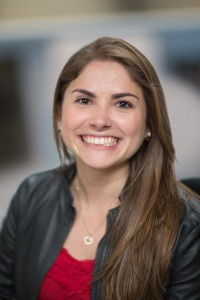 Vanessa is a Registered Nutritionist and holds both a Ph.D. and Master degree in Nutrition from Federal University of Santa Catarina, Brazil. Vanessa’s research interests are mainly related to policy aspects of health promotion and nutrition, with attention to the prevention of childhood overweight and obesity through the promotion of healthy eating. She has been involved in projects related to different aspects of food and menu labelling, which were supported by the Brazilian Ministry of Science, Technology and Innovation (MCTI) and by the Brazilian National Council for Scientific and Technological Development (CNPq).
Vanessa is a Registered Nutritionist and holds both a Ph.D. and Master degree in Nutrition from Federal University of Santa Catarina, Brazil. Vanessa’s research interests are mainly related to policy aspects of health promotion and nutrition, with attention to the prevention of childhood overweight and obesity through the promotion of healthy eating. She has been involved in projects related to different aspects of food and menu labelling, which were supported by the Brazilian Ministry of Science, Technology and Innovation (MCTI) and by the Brazilian National Council for Scientific and Technological Development (CNPq).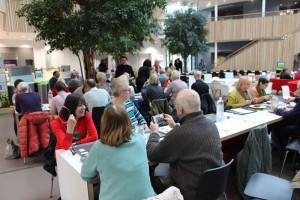
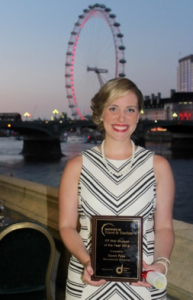
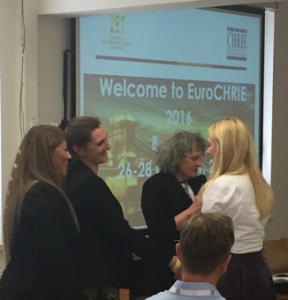



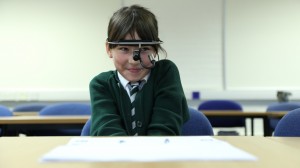











 FHSS academics teaching in Nepal
FHSS academics teaching in Nepal New weight change BU paper
New weight change BU paper One week to go! | The 16th Annual Postgraduate Research Conference
One week to go! | The 16th Annual Postgraduate Research Conference Geography and Environmental Studies academics – would you like to get more involved in preparing our next REF submission?
Geography and Environmental Studies academics – would you like to get more involved in preparing our next REF submission? Congratulations to three former BU staff
Congratulations to three former BU staff MSCA Staff Exchanges 2024 Call – internal deadline
MSCA Staff Exchanges 2024 Call – internal deadline Applications are now open for 2025 ESRC Postdoctoral Fellowships!
Applications are now open for 2025 ESRC Postdoctoral Fellowships! Horizon Europe – ERC CoG and MSCA SE webinars
Horizon Europe – ERC CoG and MSCA SE webinars MaGMap: Mass Grave Mapping
MaGMap: Mass Grave Mapping ERC grants – series of webinars
ERC grants – series of webinars